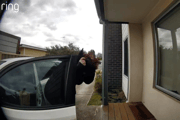Stop Snoring Tonight: Discover Dr. Zac Turner's Revolutionary Methods!
By
Gian T
- Replies 4
Snoring – it's the nighttime nemesis that can turn the sanctuary of your bedroom into a cacophonous rail yard. For our readers who've spent countless nights nudging their partners or being the unwitting soloist in a sleep-depriving symphony, you're not alone. Millions of Australians, and indeed people around the globe, are in the same boat, paddling through the choppy waters of disrupted sleep and daytime fatigue. But fear not, for Dr. Zac Turner, a beacon of hope in the foggy realm of sleep disorders, has cast a light on some revolutionary methods to curb the snore.
In a recent column, Dr. Zac Turner, a medical practitioner with a wealth of knowledge in preventive health and wellness, addressed the concerns of Amelie from Toowoomba, Queensland. Amelie likened her husband's nocturnal noises to that of a 'man-sized French bulldog,' a description that might resonate with many of our readers. Dr. Turner's response not only sympathized with the plight of the sleep-deprived but also offered practical and innovative solutions to help both the snorer and their partner reclaim the night.
Firstly, Dr. Turner suggests that snoring, often brushed off as a mere annoyance, can have serious implications for health and relationships. It's a sign of obstructed airflow during sleep, which can lead to a range of issues from daytime fatigue to strained relationships. Dr. Turner's first piece of advice may seem unconventional but is grounded in care for your well-being: consider sleeping in separate rooms occasionally to catch up on sleep. This temporary measure can prevent sleep deprivation, which is a serious health concern, and may even improve your relationship by reducing nighttime frustrations.
For those who snore, Dr. Turner recommends evaluating your sleep position. If you're a back sleeper, you're inadvertently setting the stage for snoring by allowing gravity to pull the tongue and soft tissues towards the back of the throat, causing obstruction. The solution? Side sleeping, supported by a strategic arrangement of pillows – one for your head, one to hug, one between your legs, and another along your back for support. This position is not only recommended for pregnant women but is also a snore-reducing posture that helps keep the airway open.
But what about those viral TikTok trends, like taping your mouth shut to force nose breathing? While it may seem extreme, Dr. Turner doesn't dismiss these methods outright. Instead, he encourages trying various aids, such as Mandibular Advancement Devices (MADs) and Nasal Dilators, which are available at pharmacies and can help maintain an open airway.
Beyond sleep positions and aids, Dr. Turner emphasizes the importance of healthy habits. Regular exercise can tone throat muscles, reducing the likelihood of airway collapse. Weight loss, particularly around the neck, can alleviate pressure on the airway. And let's not forget the impact of alcohol – that evening tipple might be relaxing your throat muscles a bit too much, contributing to snoring.
In summary, Dr. Turner's advice for snoring is multifaceted and holistic. It involves a combination of sleep posture adjustments, the use of breathing aids, and lifestyle changes that promote overall health. By adopting these methods, you can look forward to quieter nights and more restful sleep.
So, dear readers, if the snoring symphony has been playing too many encores in your household, it might be time to try Dr. Turner's revolutionary methods. And remember, if you have any questions or need personalized advice, Dr. Zac is just an email away at [email protected]. Here's to silent nights and restful sleep!

Now, we'd love to hear from you. Have you or your partner struggled with snoring? What methods have you tried, and have they been successful? Share your experiences in the comments below – your insights could be a lullaby for someone else's sleepless nights.
In a recent column, Dr. Zac Turner, a medical practitioner with a wealth of knowledge in preventive health and wellness, addressed the concerns of Amelie from Toowoomba, Queensland. Amelie likened her husband's nocturnal noises to that of a 'man-sized French bulldog,' a description that might resonate with many of our readers. Dr. Turner's response not only sympathized with the plight of the sleep-deprived but also offered practical and innovative solutions to help both the snorer and their partner reclaim the night.
Firstly, Dr. Turner suggests that snoring, often brushed off as a mere annoyance, can have serious implications for health and relationships. It's a sign of obstructed airflow during sleep, which can lead to a range of issues from daytime fatigue to strained relationships. Dr. Turner's first piece of advice may seem unconventional but is grounded in care for your well-being: consider sleeping in separate rooms occasionally to catch up on sleep. This temporary measure can prevent sleep deprivation, which is a serious health concern, and may even improve your relationship by reducing nighttime frustrations.
For those who snore, Dr. Turner recommends evaluating your sleep position. If you're a back sleeper, you're inadvertently setting the stage for snoring by allowing gravity to pull the tongue and soft tissues towards the back of the throat, causing obstruction. The solution? Side sleeping, supported by a strategic arrangement of pillows – one for your head, one to hug, one between your legs, and another along your back for support. This position is not only recommended for pregnant women but is also a snore-reducing posture that helps keep the airway open.
But what about those viral TikTok trends, like taping your mouth shut to force nose breathing? While it may seem extreme, Dr. Turner doesn't dismiss these methods outright. Instead, he encourages trying various aids, such as Mandibular Advancement Devices (MADs) and Nasal Dilators, which are available at pharmacies and can help maintain an open airway.
Beyond sleep positions and aids, Dr. Turner emphasizes the importance of healthy habits. Regular exercise can tone throat muscles, reducing the likelihood of airway collapse. Weight loss, particularly around the neck, can alleviate pressure on the airway. And let's not forget the impact of alcohol – that evening tipple might be relaxing your throat muscles a bit too much, contributing to snoring.
In summary, Dr. Turner's advice for snoring is multifaceted and holistic. It involves a combination of sleep posture adjustments, the use of breathing aids, and lifestyle changes that promote overall health. By adopting these methods, you can look forward to quieter nights and more restful sleep.
So, dear readers, if the snoring symphony has been playing too many encores in your household, it might be time to try Dr. Turner's revolutionary methods. And remember, if you have any questions or need personalized advice, Dr. Zac is just an email away at [email protected]. Here's to silent nights and restful sleep!
Key Takeaways
- Dr Zac Turner provides advice on how to prevent snoring, which can affect health and relationships.
- He recommends sleeping in a different room if necessary and adopting a side-sleeping position with multiple pillows to reduce snoring.
- Using Mandibular Advancement Devices (MADs) and Nasal Dilators, as well as improving general health through weight management and exercise, can also help.
- Avoiding alcohol before sleep and changing sleeping posture are recommended methods to prevent snoring and enhance overall sleep quality.
Now, we'd love to hear from you. Have you or your partner struggled with snoring? What methods have you tried, and have they been successful? Share your experiences in the comments below – your insights could be a lullaby for someone else's sleepless nights.








